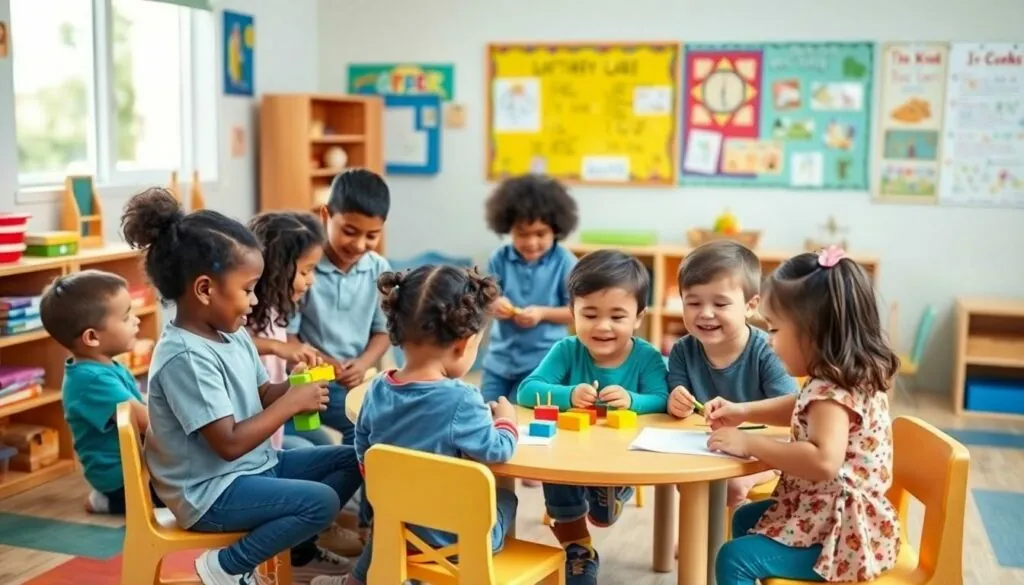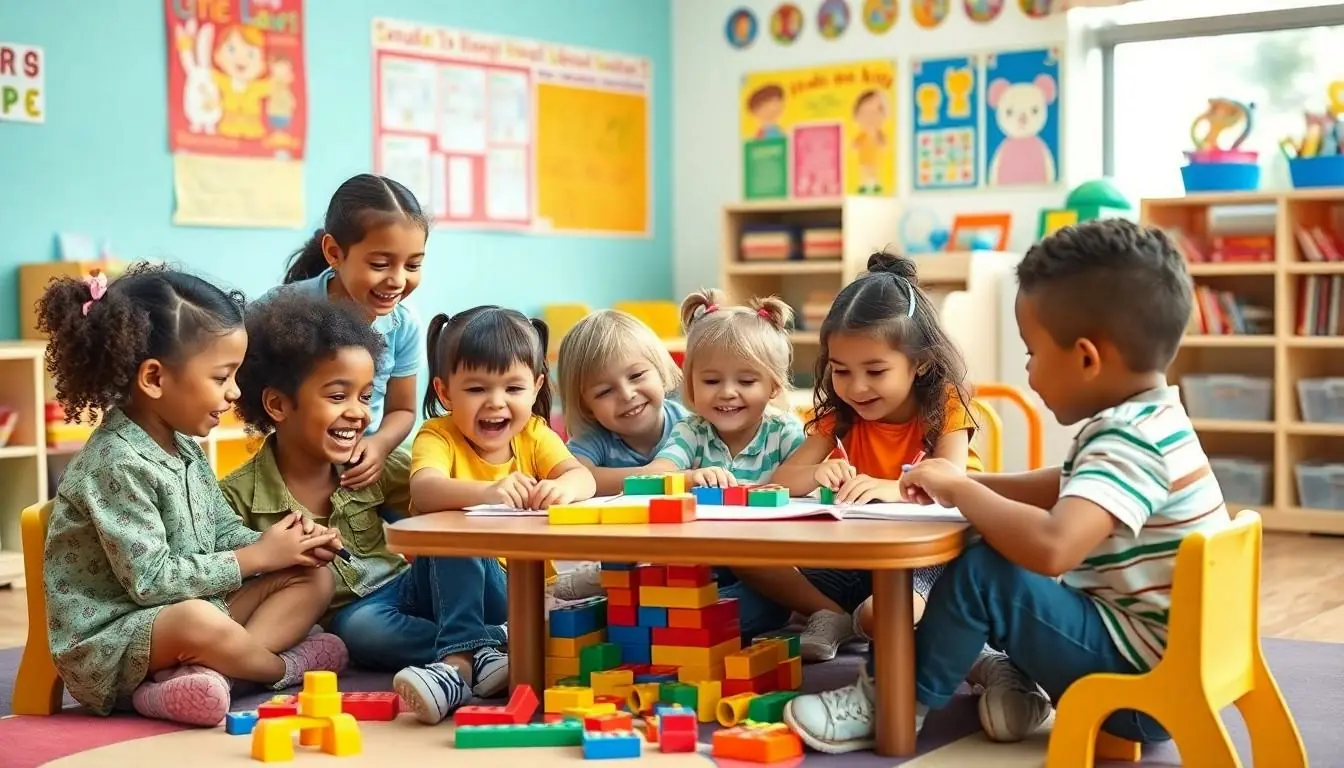Table of Contents
ToggleWhen you think of preschool age, what comes to mind? Tiny humans in oversized backpacks, armed with crayons and an insatiable curiosity? You’re not alone! The preschool years are a magical time when kids dive headfirst into learning and socializing. But just how old is preschool age?
Understanding Preschool Age
Preschool age encompasses a critical developmental stage for young children. This period is marked by enhanced curiosity and an eagerness to explore the world.
Definition of Preschool Age
Preschool age refers to the stage before formal schooling begins. Characteristics of this age include increased social interaction and foundational skill development. Children typically become more independent during this phase, learning from their surroundings and peers. According to experts, preschool age is often defined as ages three to five, allowing for rich educational experiences that prepare children for kindergarten.
Typical Age Range
Typical ages for preschoolers span from three to five years. During this range, children undergo significant cognitive, emotional, and physical growth. Many preschools accept children who are turning three on or before a specific date, often around September 1. Conversely, some programs may have a cutoff date that aligns with the start of the school year. By age five, children generally transition to kindergarten, marking a pivotal point in their educational journey.
Importance of Preschool Age
Preschool age is crucial for a child’s overall development and sets the stage for future learning. This period encompasses significant growth in various aspects, impacting readiness for kindergarten.
Developmental Milestones
During preschool years, children achieve important developmental milestones. Fine motor skills improve as they engage in activities like drawing or building blocks. Language skills expand significantly; children typically learn to form sentences and express their thoughts clearly. Cognitive abilities also flourish with problem-solving tasks and early math concepts introduced through play. Physical development includes increased coordination and balance, enabling them to participate in group activities. These milestones lay the groundwork for success in primary education.
Social and Emotional Growth
Social and emotional growth plays a vital role during preschool age. Children develop empathy by interacting with peers, learning to understand others’ feelings. Cooperative play leads to essential skills like sharing and taking turns, fostering teamwork. Resilience builds as they navigate conflicts and learn to express emotions effectively. Children also gain self-confidence through participation in classroom routines and small group activities. These social skills contribute to positive relationships in school, helping them adapt to a structured educational environment.
Factors Influencing Preschool Age
Multiple factors can influence the definition of preschool age, including cultural practices and educational systems. Each aspect shapes how societies view early childhood education and development.
Cultural Differences
Cultural norms play a significant role in determining preschool age. Some cultures prioritize early educational experiences, enrolling children at age two or three. Others may focus on family-centered care, delaying formal education until age four or five. Variations in societal values also affect the structure and content of preschool programs, adapting to community needs. These cultural contexts help shape children’s readiness for learning in diverse settings, highlighting the importance of understanding local practices.
Educational Systems
Educational systems vary across regions, impacting preschool age definitions. In some countries, structured preschool programs target children aged three to five, establishing a clear transition to primary education. Other systems may integrate preschool into a broader early childhood framework, adjusting age requirements accordingly. Regulations and policies further influence enrollment ages, with specific cutoff dates marking eligibility for kindergarten. Through these systems, providers aim to align preschool experiences with educational readiness, ensuring a smooth shift into formal schooling.
Key Considerations for Parents
Parents often face important decisions when navigating preschool options. Educators and childcare experts recommend considering what aligns with a child’s needs and developmental goals.
Selecting the Right Preschool
Choosing the right preschool involves understanding various factors. Parents should assess the curriculum offered, ensuring it supports social, emotional, and cognitive growth. Facility safety and adult-to-child ratios matter, as smaller groups foster better attention and interaction. Visiting potential schools allows parents to observe the environment and teaching style firsthand. Seeking recommendations from other parents provides valuable insights into local programs. Enrollment timelines also play a role; many preschools accept children who turn three by specific cut-off dates. Awareness of each school’s philosophy can help parents find the best match for their child.
Readiness Assessment
Evaluating a child’s readiness for preschool includes observing several developmental milestones. Parents can assess communication skills, determining if their child expresses needs or ideas clearly. Social interactions serve as another indicator; children often show comfort in playing with peers and sharing toys. Cognitive skills like problem-solving and following directions indicate preparedness for structured learning. Emotional maturity is also vital, as children should exhibit the ability to cope with separation from parents. Conducting informal assessments at home through play can provide parents with insight into their child’s readiness for the preschool environment.
Conclusion
Understanding preschool age is essential for parents navigating early childhood education. This stage typically spans from ages three to five and serves as a foundation for future learning. During these years, children develop crucial social, emotional, and cognitive skills that prepare them for kindergarten.
Cultural practices and educational systems play a significant role in defining when children should start preschool. Parents should consider these factors alongside their child’s readiness. By choosing the right preschool and assessing developmental milestones, parents can ensure their child embarks on a positive educational journey. The preschool years are not just about learning; they’re about building a strong foundation for lifelong success.








